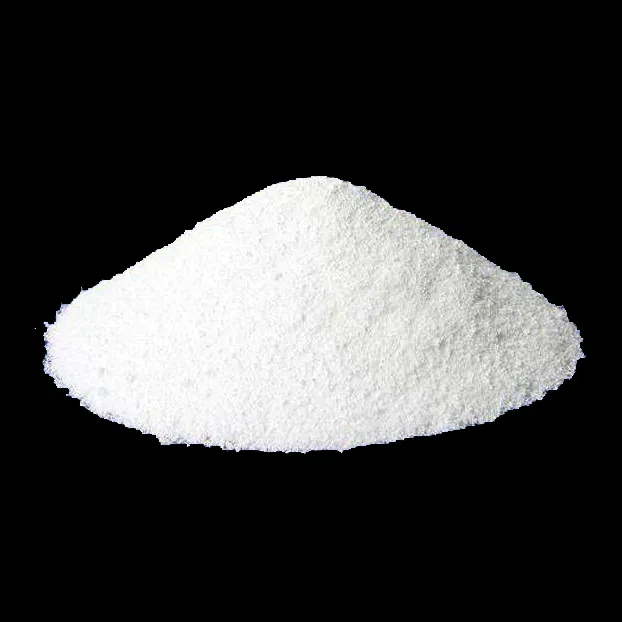Papel e precauções do pirofosfato de sódio nos alimentos
Visão geral do TSP
O pirofosfato de sódio é um aditivo alimentar comum encontrado em vários alimentos. No entanto, as pessoas com alergias devem ter cuidado ao consumi-lo.
Função e benefícios
Preservação anti-corrosão: O pirofosfato de sódio ajuda a prolongar o prazo de validade dos alimentos, proporcionando efeitos anticorrosivos e de conservação.
Realce do sabor: Melhora o sabor dos alimentos, tornando-os mais deliciosos.
Antioxidante: Retarda a oxidação e a deterioração dos alimentos, ajudando a manter a sua frescura e qualidade.
Precauções para os doentes
Reação alérgica: Se for alérgico ao fosfato trissódico, evite alimentos que contenham este aditivo para prevenir sintomas como comichão e vermelhidão na pele.
Procurar assistência médica: Se surgirem sintomas alérgicos, consultar imediatamente um médico para obter aconselhamento profissional.
Sugestões para a vida quotidiana
Dieta equilibrada: Manter uma dieta equilibrada com nutrientes ricos e evitar alimentos demasiado picantes e irritantes.
Descanso adequado: Assegurar um sono suficiente para melhorar a imunidade e a saúde em geral.
Controlos regulares: Efetuar exames de saúde regulares para controlar e manter um bom estado de saúde.
Pirofosfato de sódio nos alimentos
Aplicação multifuncional de pó branco:
O fosfato trissódico de qualidade alimentar é um pó branco utilizado como estabilizador e tampão no processamento de alimentos. Adicionando-o a produtos como molho de soja e sumo pode melhorar a sua cor e brilho.
Efeito quelante superior dos iões metálicos:
O pirofosfato de sódio melhora a qualidade do produto e pode ser utilizado como agente de fusão e emulsionante para o queijo. Também é utilizado no molho de soja e noutros produtos para evitar o escurecimento e melhorar a cor.
Grau Alimentar vs. Nível Industrial
O fosfato trissódico de qualidade alimentar, tal como os produtos fornecidos pela Goway Chemical, é fornecido com licenças de produção de aditivos alimentares, garantindo segurança e fiabilidade para uma ampla utilização no processamento de alimentos.
Conclusão
O pirofosfato de sódio desempenha um papel vital na preservação dos alimentos, na melhoria do sabor e na prevenção da oxidação. No entanto, é importante que os indivíduos com alergias tenham cuidado. Manter uma dieta equilibrada, assegurar um descanso adequado e efetuar exames de saúde regulares são essenciais para o bem-estar geral. O fosfato trissódico de qualidade alimentar oferece segurança e fiabilidade, tornando-o um aditivo valioso no processamento de alimentos.
FAQ
Q: Qual é a principal função do pirofosfato de sódio nos alimentos? R: O pirofosfato de sódio actua como conservante, intensificador de sabor e antioxidante em produtos alimentares.
P: Existem precauções para indivíduos com alergias relativamente ao fosfato trissódico? R: Sim, as pessoas alérgicas ao fosfato trissódico devem evitar alimentos que o contenham para prevenir reacções alérgicas como comichão e vermelhidão na pele.
Q: Como é que o pirofosfato de sódio pode melhorar os produtos alimentares? R: Aumenta a cor e o brilho, actua como estabilizador e tampão e evita o escurecimento de produtos como o molho e o sumo de soja.
P: Qual é a diferença entre o pirofosfato de sódio de qualidade alimentar e o de qualidade industrial? R: O fosfato trissódico de qualidade alimentar é certificado para segurança e fiabilidade no processamento de alimentos, ao contrário da qualidade industrial, que é utilizada para aplicações não alimentares.
P: Que hábitos diários podem ajudar a gerir potenciais alergias a aditivos alimentares como o fosfato trissódico? R: Manter uma dieta equilibrada, assegurar um descanso adequado e fazer exames de saúde regulares pode ajudar a gerir potenciais alergias.

